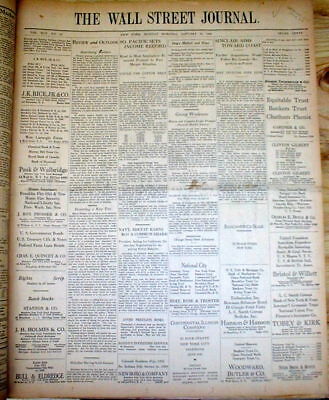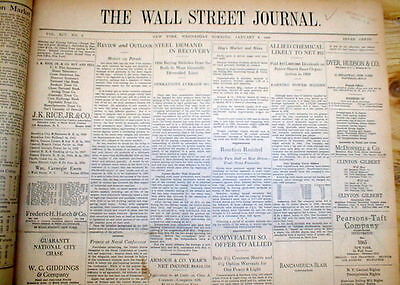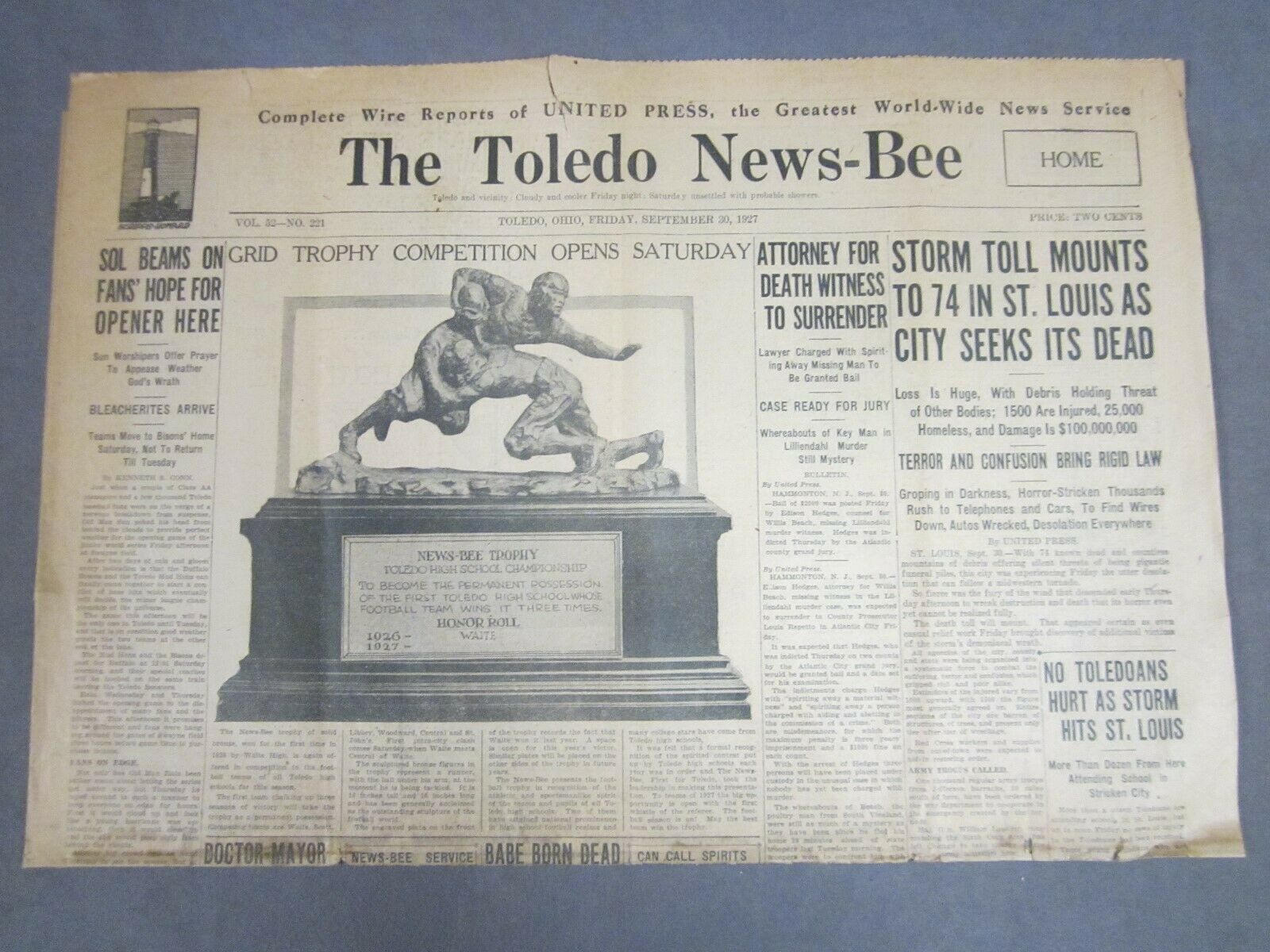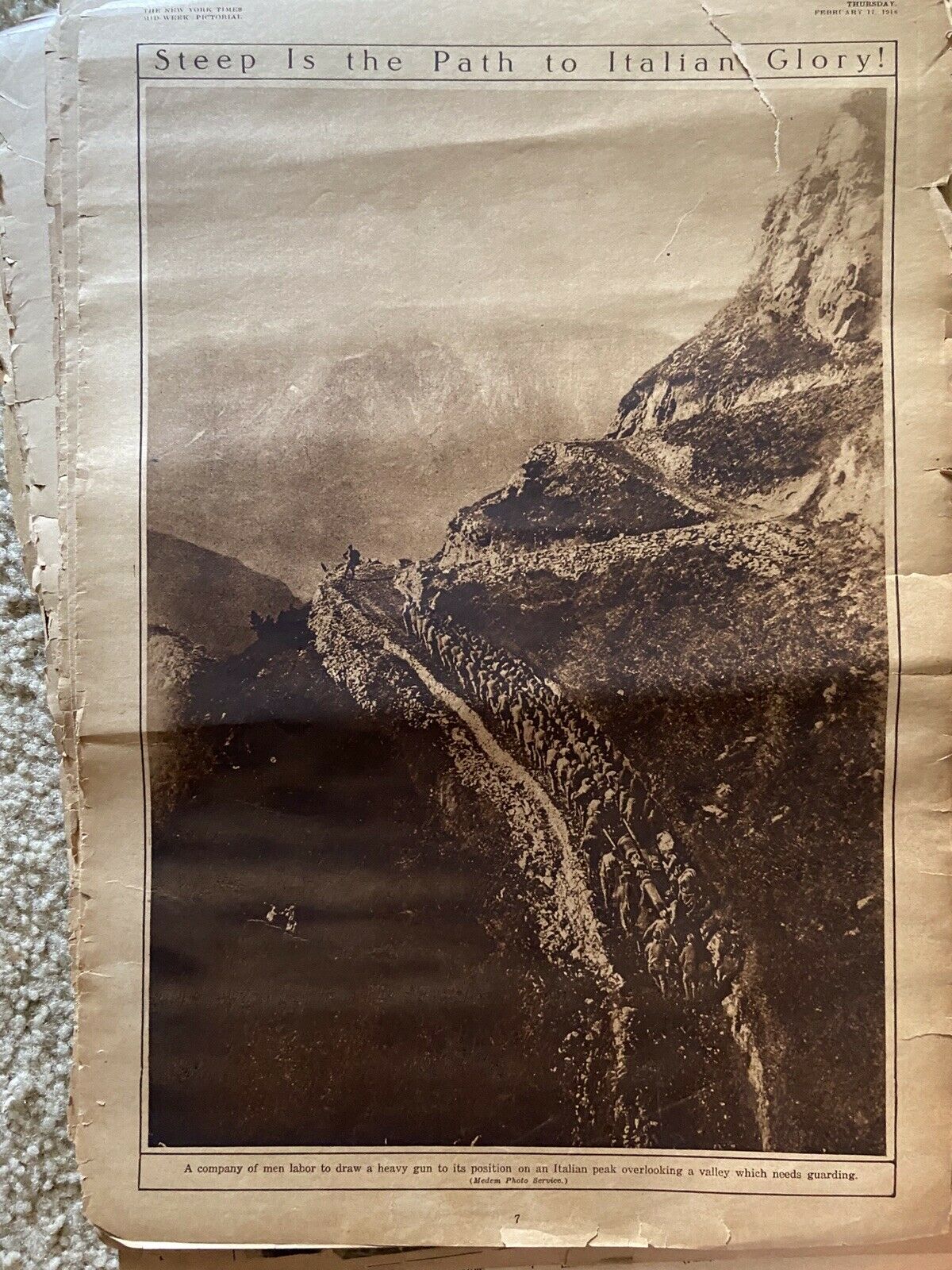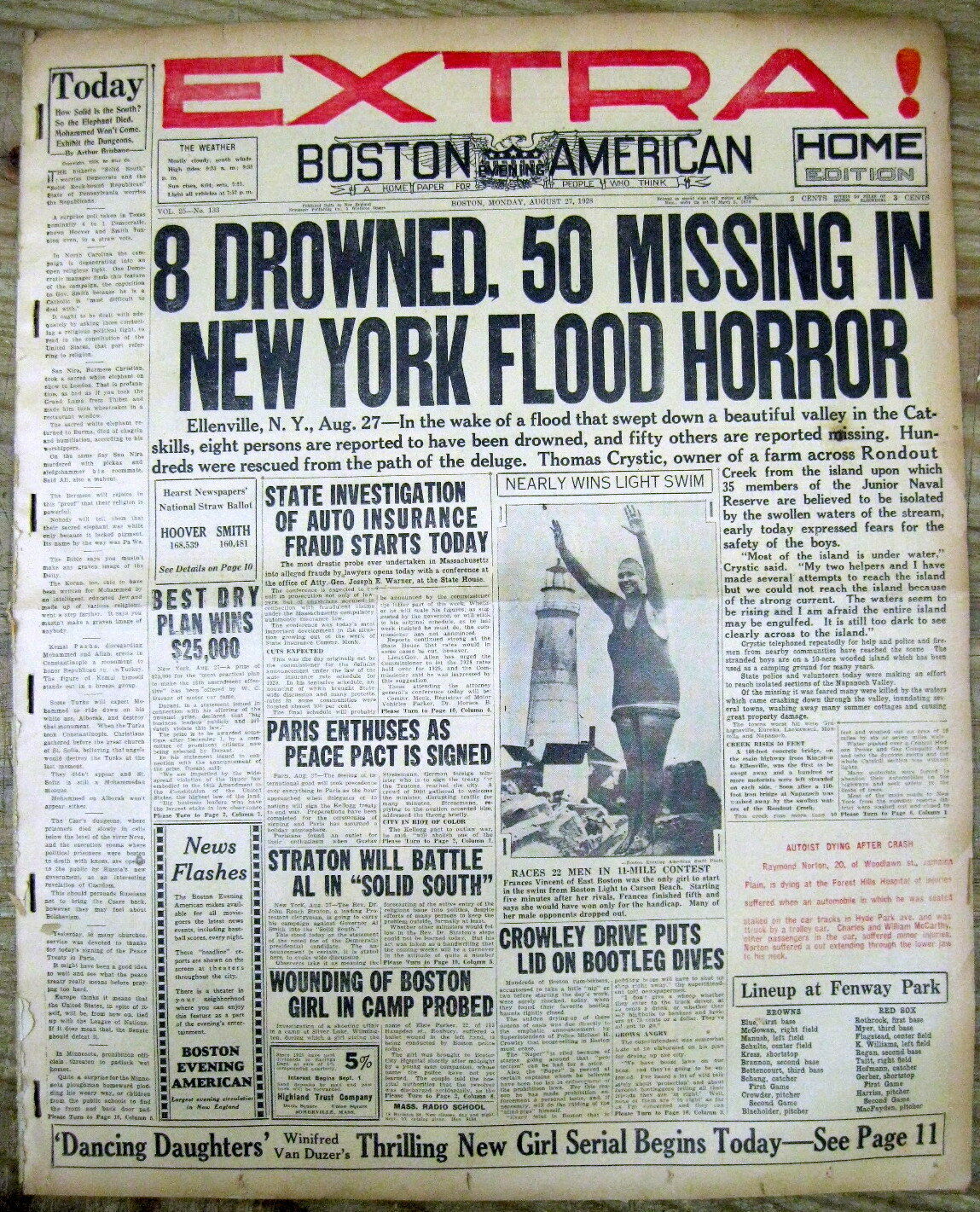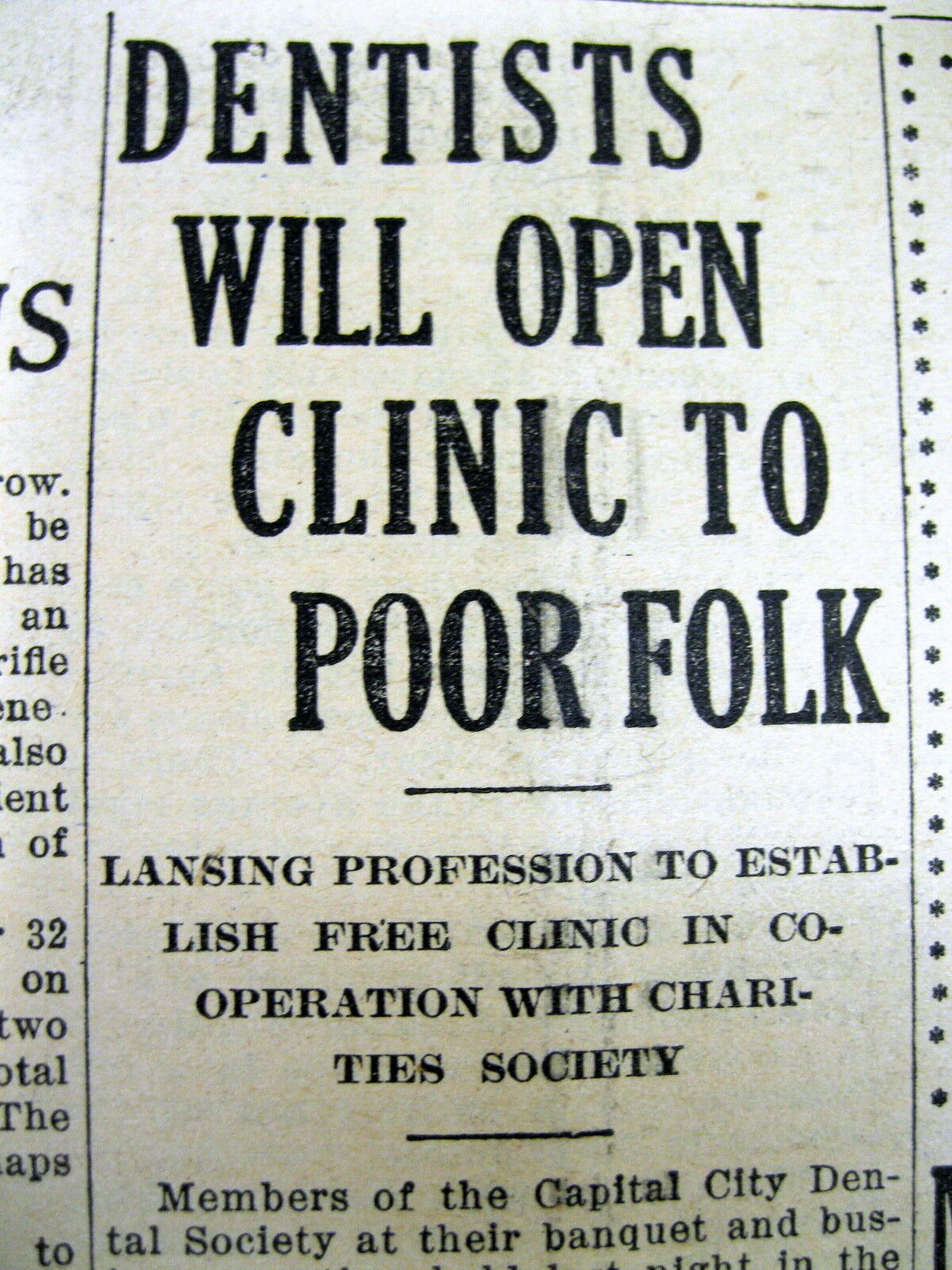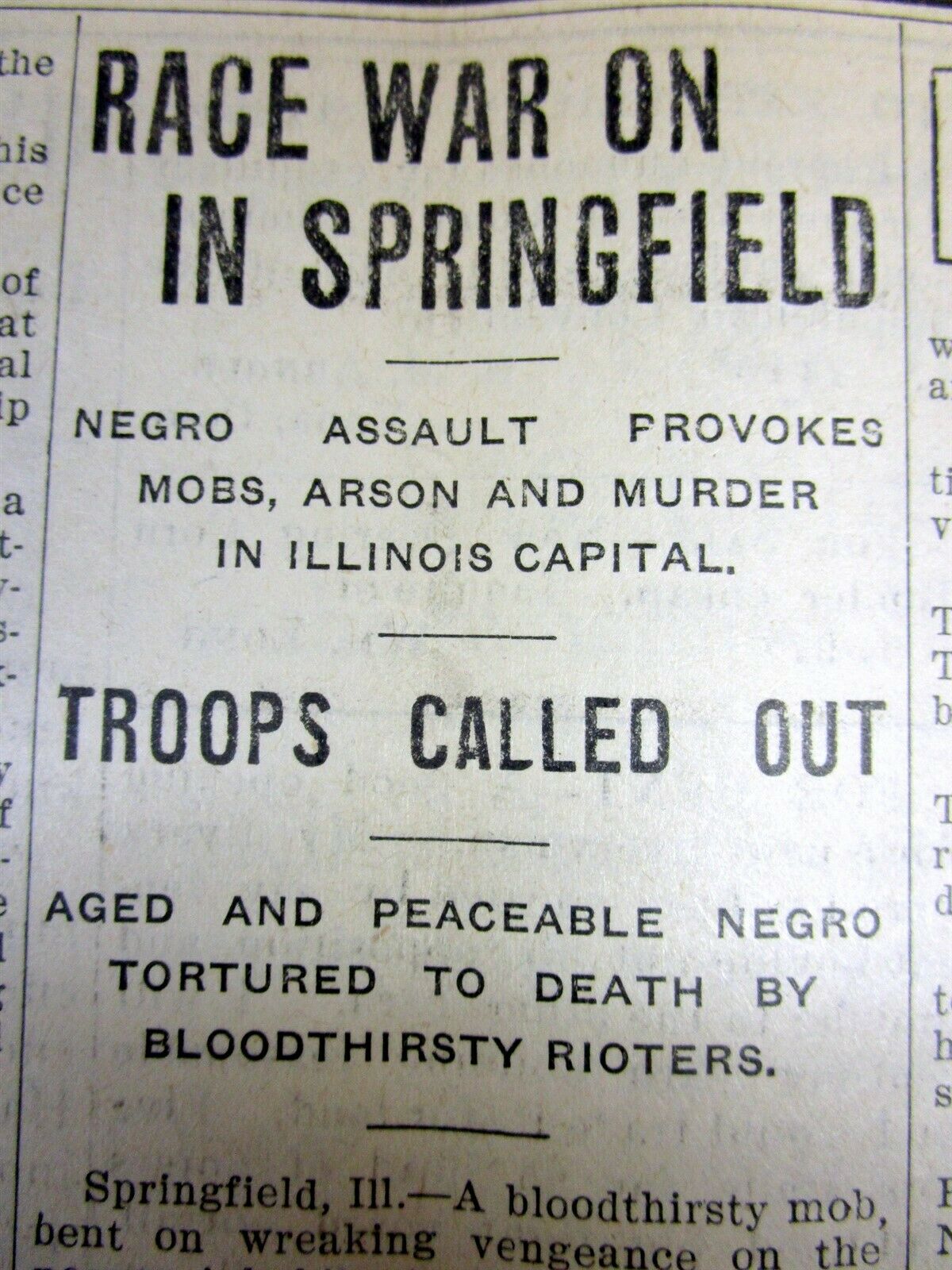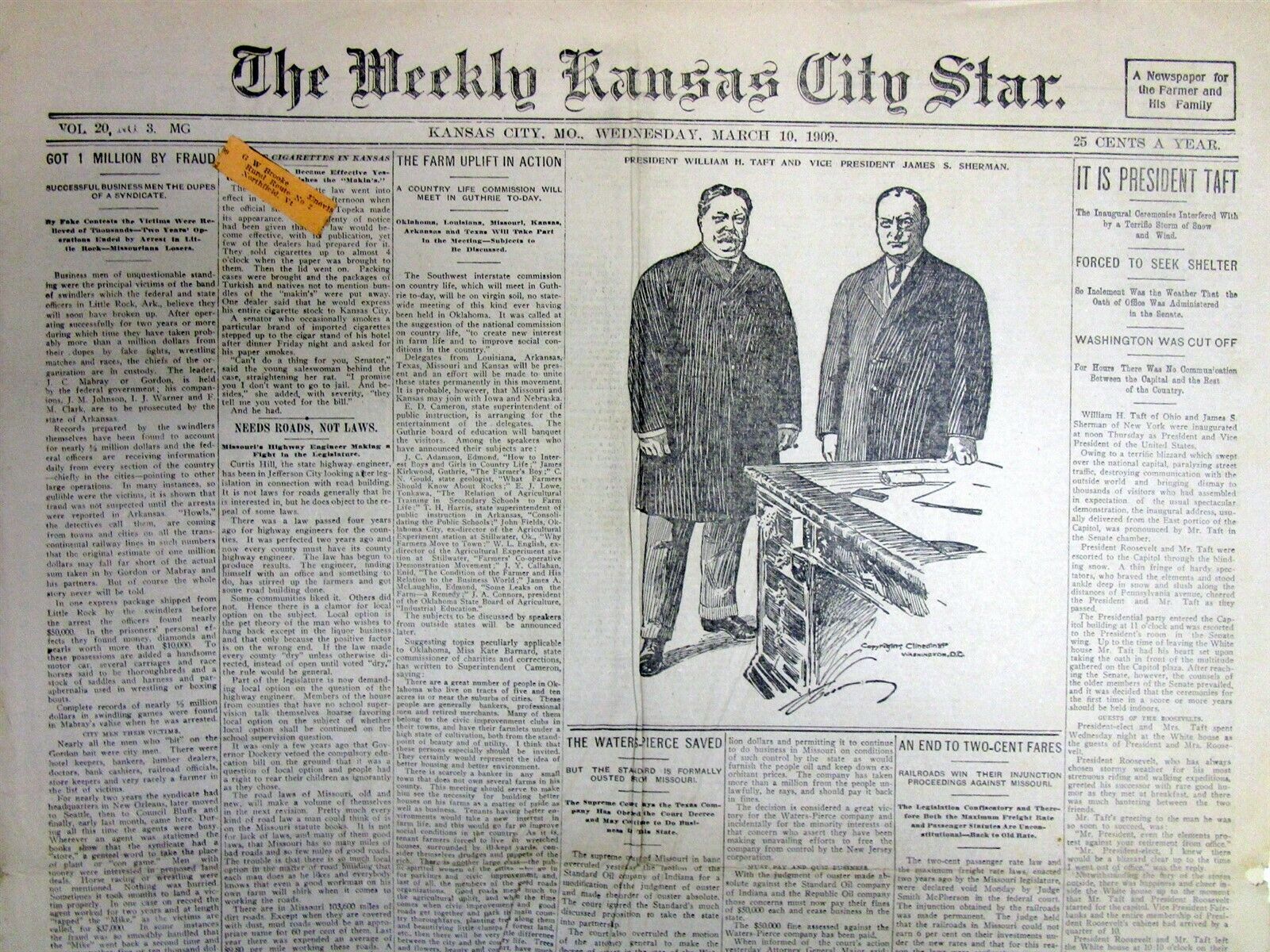-40%
Orignal 1930 Wall Street Journal newspaper STOCK MARKET CRASH & GREAT DEPRESSION
$ 26.4
- Description
- Size Guide
Description
Original 1930 Wall Street Journal newspaper STOCK MARKET CRASH & GREAT DEPRESSION-
inv # generic
SEE PHOTOs----- COMPLETE ORIGINAL newspaper, the
Wall Street Journal
(NY) dated in January or February, 1930. This was just weeks after the CRASH of the NEW YORK STOCK MARKET and the onset of the GREAT DEPRESSION.
THE
newspaper for all matters financial with great coverage of the beginning of the Great Depression. Read all about the financial news after the stock market crashed at the time of the
GREAT DEPRESSION
.
GREAT frameable GIFT for that STOCKBROKER FRIEND of yours !!!
We have 40 different dates in Jan through Feb, 1930. The exact date in Jan or Feb, 1930 that a buyer will receive is selected
AT RANDOM
from our inventory of these original newspapers.
The Great Depression
in the
United States
began on "Black Tuesday" with the
Wall Street crash of November, 1929
and rapidly spread worldwide. The market crash marked the beginning of a decade of high unemployment, poverty, low profits,
deflation
and lost opportunities for economic growth and personal advancement. Although
its causes
are still uncertain, the basic cause was a sudden loss of confidence in the economic future. The traditional explanation is a combination of high consumer
debt
, ill-regulated markets that permitted malfeasance by banks and investors, cutbacks in foreign trade, and growing
wealth inequality
, all interacting to create a downward economic spiral of reduced spending and production. The initial government response to the crisis exacerbated the situation; protectionist policies like the 1930
Smoot-Hawley Tariff Act
, rather than helping the economy, merely strangled global trade. Industries that suffered the most included agriculture, mining, and logging as well as durable goods like construction and automobiles that people postponed.
The economy eventually recovered from the low point of the winter of 1932-33, with sustained improvement until 1937, when the
Recession of 1937
brought back 1934 levels of unemployment.
The Wall Street Crash of 1929, also known as the Crash of ’29, was one of the most devastating stock market crashes in American history—probably the very worst, taking into consideration the full scope and longevity of its fallout. Two catchphrases, “Black Thursday” and “Black Tuesday,” evoke this collapse of stock values. Both are authentic, for the crash was no one-day affair. The initial crash occurred on Black Thursday (
October 24
,
1929
). The collapse continued for a month, but it was the catastrophic downturn of Black Tuesday (
October 29, 1929
) five days later that precipitated widespread panic and the onset of unprecedented and long-lasting consequences for the
United States
. Economists and historians disagree as to what role the crash played in subsequent economic, social, and political events. Some consider it to be the beginning of the
Great Depression
.
The Wall Street Journal
is an
English-language
international daily newspaper published by
Dow Jones & Company
. The
Journal
newspaper primarily covers
U.S.
and
international business
and financial news and issues—the paper's name comes from
Wall Street
, the street in New York City that is the heart of the
financial district
. It has been printed continuously since being founded July 8, 1889, by
Charles Dow
,
Edward Jones
, and
Charles Bergstresser
.
Dow Jones & Company
, publisher of the
Journal
, was founded in 1882 by reporters
Charles Dow
,
Edward Jones
and
Charles Bergstresser
. Jones converted the small
Customers' Afternoon Letter
into
The Wall Street Journal
, first published in 1889,
and began delivery of the Dow Jones News Service via telegraph. The
Journal
featured the Jones 'Average', the first of several indexes of stock and bond prices on the New York Stock Exchange.
Journalist
Clarence Barron
purchased control of the company for
US$
130,000 in 1902; circulation was then around 7,000 but climbed to 50,000 by the end of the 1920s. Barron and his predecessors were credited with creating an atmosphere of fearless, independent financial reporting—a novelty in the early days of business journalism.
Barron died in 1928, a year before
Black Tuesday
, the stock market crash that greatly effected the
Great Depression
in the United States. Barron's descendants, the
Bancroft family
, would continue to control the company until 2007.
Good-Very good condition. This listing includes the complete entire original newspaper, NOT just a clipping or a page of it. STEPHEN A. GOLDMAN HISTORICAL NEWSPAPERS stands behind all of the items that we sell with a no questions asked, money back guarantee. Every item we sell is an original newspaper printed on the date indicated at the beginning of its description. U.S. buyers pay priority mail postage which includes waterproof plastic and a heavy cardboard flat to protect your purchase from damage in the mail. International postage is quoted when we are informed as to where the package is to be sent. We do combine postage (to reduce postage costs) for multiple purchases sent in the same package.
We list thousands of rare newspapers with dates from 1570 through 2004 on Ebay each week. This is truly SIX CENTURIES OF HISTORY that YOU CAN OWN!
Stephen A. Goldman Historical Newspapers has been in the business of buying and selling historical newspapers for over 45 years. Dr. Stephen A. Goldman is a consultant to the Freedom Forum Newseum and a member of the American Antiquarian Society. You can buy with confidence from us, knowing that we stand behind all of our historical items with a 100% money back guarantee. Let our 45+ years of experience work for YOU ! We have hundreds of thousands of historical newspapers (and their very early precursors) for sale.
